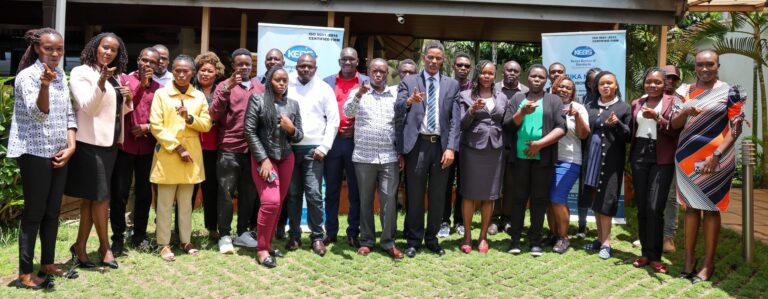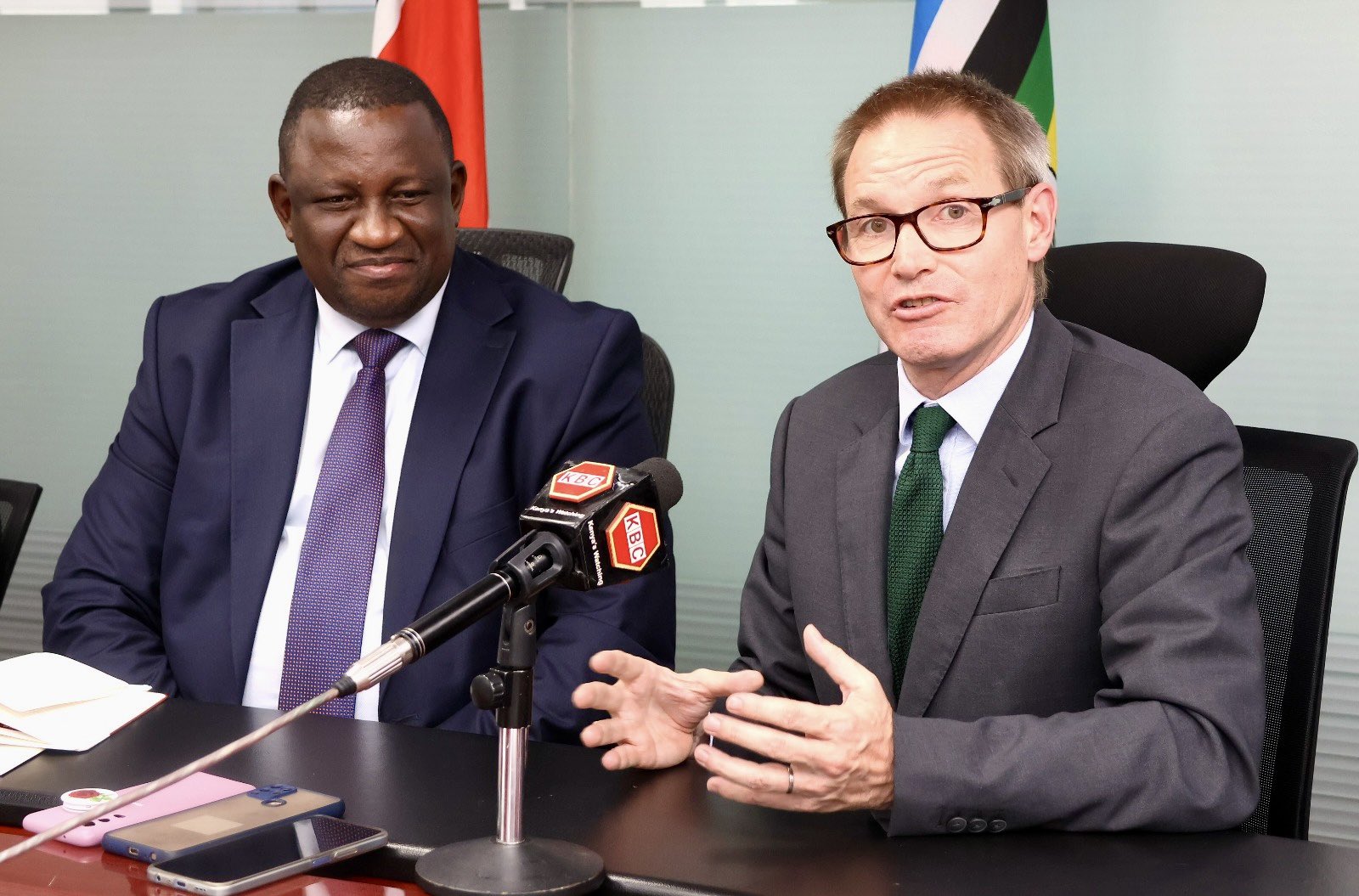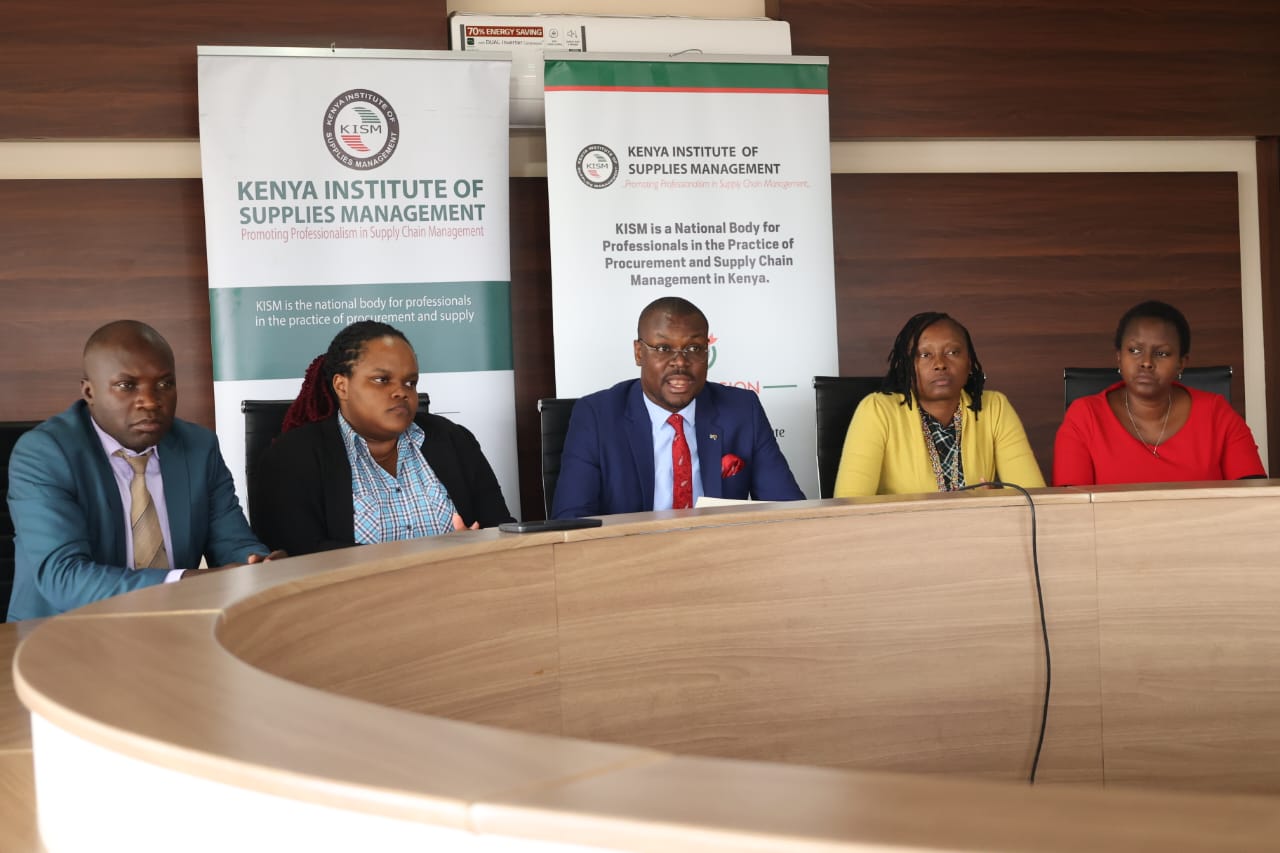By Eddah Waithaka
The Kenya Bureau of Standards (KEBS) engaged journalists in a media sensitization workshop in Nairobi today, equipping them with knowledge on standards development, market surveillance, and quality assurance.
Representatives from KEBS’ Standards Development, Market Surveillance, and Quality Assurance & Inspection (QA&I) directorates led discussions on ensuring the safety and quality of goods and services in the market.
The workshop aimed to strengthen media understanding of KEBS’ mandate, fostering accurate reporting and enhancing collaboration between the agency and journalists.
Upholding Measurement Standards for Public Safety
Speaking during the workshop, Dr. Redemta Cherotich, Chief Manager of Marketing and Customer Care at KEBS, emphasized the importance of maintaining precise measurements for calibration.
“We focus on maintaining measurements for calibration using the latest technology. As we upgrade our equipment, we assess market innovations to adopt the best solutions for Kenya,” she said.
She highlighted the critical role of KEBS’ COBAT-60 calibration center in ensuring the accuracy of cancer treatment equipment, supporting Kenya’s universal healthcare goals.
“Replacing outdated equipment requires significant investment, but we are committed to advancing our capabilities,” she added.
Ensuring Product Quality and Consumer Protection
John Kabue, Acting Chief Manager of Quality Assurance at KEBS, outlined the bureau’s dual mandate, facilitating trade and safeguarding consumers.
“We develop standards to ensure smooth trade and consumer safety. Our role is to verify that manufacturers and importers adhere to these standards,” he explained.
Kabue urged consumers to verify product authenticity before purchase by sending an SMS with the permit number to 20023 (for Safaricom users) or calling the toll-free line 1545 for inquiries.
Identifying Genuine KEBS-Certified Products
KEBS employs various certification marks to identify approved products, including the Import Standardization Mark (ISM), which applies to imported goods and features a Unique Consignment Reference (UCR) number.
The Standardization Mark (SM) for locally manufactured items and the prestigious Diamond Mark of Excellence, awarded to premium-quality goods that meet stringent requirements.
“Certification involves rigorous factory inspections, lab testing, and process reviews before approval,” Kabue noted.
Market Surveillance and Risk-Based Inspections
KEBS conducts routine factory and port inspections while also targeting high-risk products based on intelligence and consumer reports.
“We prioritize items like alcohol, sugar, maize flour, and animal feeds, depending on emerging risks such as aflatoxin contamination,” Kabue said.
He called for public vigilance, urging consumers to report substandard goods via the YBK initiative to strengthen market surveillance.
Addressing Demand for Low-Quality Goods
Responding to concerns about the high demand for substandard products, Kabue dismissed the notion that consumers intentionally seek inferior goods.
“People want value for their money. The challenge lies in unscrupulous traders supplying counterfeit or unsafe products,” he said.
He reaffirmed KEBS’ commitment to cracking down on non-compliant goods through partnerships with consumers, manufacturers, and regulators.
“Report suspicious products your vigilance helps us keep the market safe,” he urged. The workshop underscored KEBS’ proactive approach to standards enforcement and consumer education, reinforcing its role in safeguarding Kenya’s market integrity.
Read More Stories At : https://africawatchnews.co.ke/







